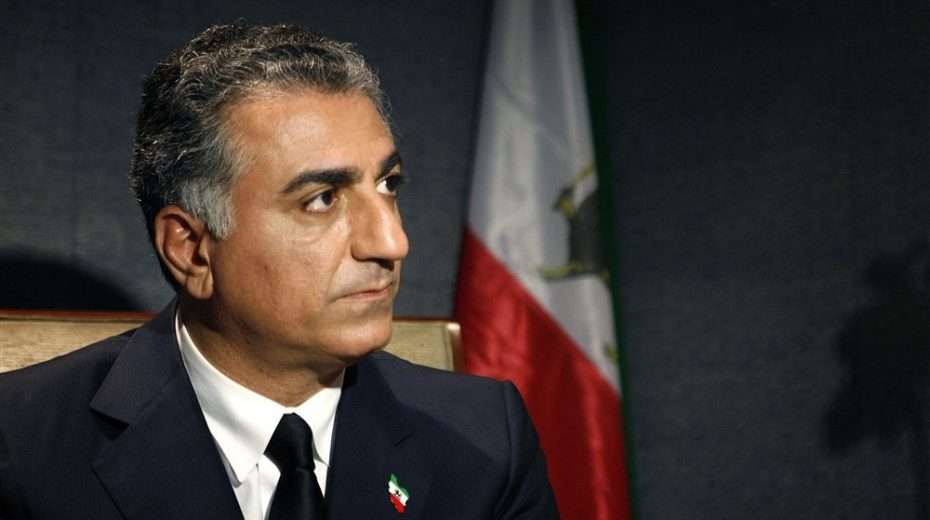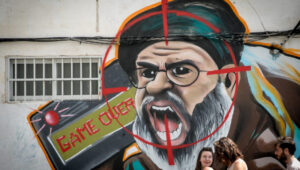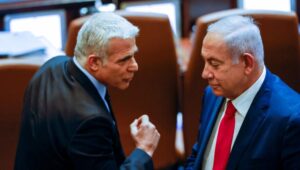Reza Pahlavi, heir to the Persian throne and son of the last shah, Mohammad Reza Pahlavi, will make a historic visit to Israel on Monday as a guest of the Ministry of Intelligence. During his visit to Israel, Pahlavi will meet with Prime Minister Benjamin Netanyahu and with Intelligence Minister Gila Gamliel.
Pahlavi, who lives in the United States, will participate on Monday evening in the state ceremony marking Holocaust Remembrance Day at Yad Vashem – a ceremony that will be addressed by Netanyahu and President Isaac Herzog, both of whom are expected to speak about the threats of annihilation from Iran, which is controlled by the ayatollahs who overthrew Pahlavi’s father.
The Ministry of Intelligence stated that the Persian royal’s visit “is intended to express solidarity with the citizens of Israel in light of the attacks by terrorist organizations operating under the auspices of Iran, to renew the relationship between the nations and to build an economic relationship with a focus on water technologies. Also, the Crown Prince is coming to honor the victims of the Holocaust as part of the Remembrance Day events and denounce the antisemitism and Holocaust denial of the Ayatollah regime.”
During his visit, the Pahlavi will also visit the Western Wall and host a meeting with senior officials of the community of Iranian expatriates in Israel.
Minister of Intelligence, MK Gila Gamaliel: “I am happy to host the Iranian Crown Prince, and appreciate his brave decision to visit Israel for the first time. The Crown Prince symbolizes a leadership different from that of the Ayatollah regime, and holds values of peace and tolerance, in contrast to the extremists who today rule Iran. Good relations between our nations existed already thousands of years ago, back in the days of Queen Esther who thwarted the evil Haman’s plot to destroy the Jews in Persia. We are taking the first step today to rebuild the ties between the nations.”
The Iranian heir to the throne, Reza Pahlavi: “The Iranian people aspire to a government that will respect its heritage, with the preservation of human rights and respect for religious and cultural diversity, among other things through the restoration of peace and friendship with Israel and Iran’s other neighbors. Millions of my compatriots still remember living alongside their Jewish friends and neighbors – before the Islamic Revolution tore the fabric of our society apart. They reject the regime’s murderous anti-Israel and antisemitic policies, and long for cultural, scientific and economic exchanges with Israel. A democratic Iran will seek to renew its ties with Israel and our Arab neighbors. In my opinion, that day is closer than ever.”
In 2019, Reza Koresh Pahlavi said that he sees himself as the leader of the opposition in Iran and aspires to return to it one day, because “in the democratic future Iran that I see in my vision, we will be friends again.” Pahlavi works against the Ayatollah regime from his home in the US and participated in demonstrations against the oppression of women in Iran.
“In principle, we will open relations with all friendly countries on the basis of mutual respect, in contrast to the current regime, which has been waging wars since coming to power.”
Pahlavi’s father, Mohammad Reza Pahlavi, fled Iran on January 16, 1979 in the shadow of the bloody demonstrations in Tehran and other cities. The masses took to the streets in those days to protest against his corrupt regime, which brutally oppressed political opponents. After months of clashes, when the army showed signs of weakness and the cancer-stricken shah appeared to be dysfunctional, he fled to Egypt – and the ayatollahs came to power led by the leader of the religious section of the opposition, Ruhollah Khomeini.
Reza Pahlavi was already in the US at the time: two years before, when he was 17-years-old, he went to study in America, where he remains until this day. In 1980, when he turned 21, his father died in Egypt, and Reza Pahlavi assumed the role of head of the household. Since then he has devoted his life to opposing the religious regime in Tehran.
Although many in Iran remember the Pahlavi family as a symbol of tyranny, corruption and exploitation of the citizenry, Prince Reza Pahlavi believes that the masses there still look up to the dynasty to which he belongs. In the past year, amid economic and social turmoil, there have been reports from Iran of public expressions of affection and longing for the Shah and his secular regime.















